About Us
Researchers + Clinicians
Parents
With the impacts of COVID-19 still ongoing, we extend our thoughts to the Melbourne community, who have been affected most by restrictions in Australia. We hope you are all keeping safe and well and send a special message of support to our healthcare workers.
The Stillbirth CRE co-ordinating team continues to work from home and abide by social distancing recommendations and we are working hard to ensure that women and families continue to receive important and up-to-date information on stillbirth prevention.
We are looking forward to a very busy last few months of the year as we launch the Safer Baby Bundle in Queensland and Western Australia, and the new IMPROVE eLearning module for healthcare professionals. We hope to see you there via Zoom!
Take care and best wishes from the Stillbirth CRE.
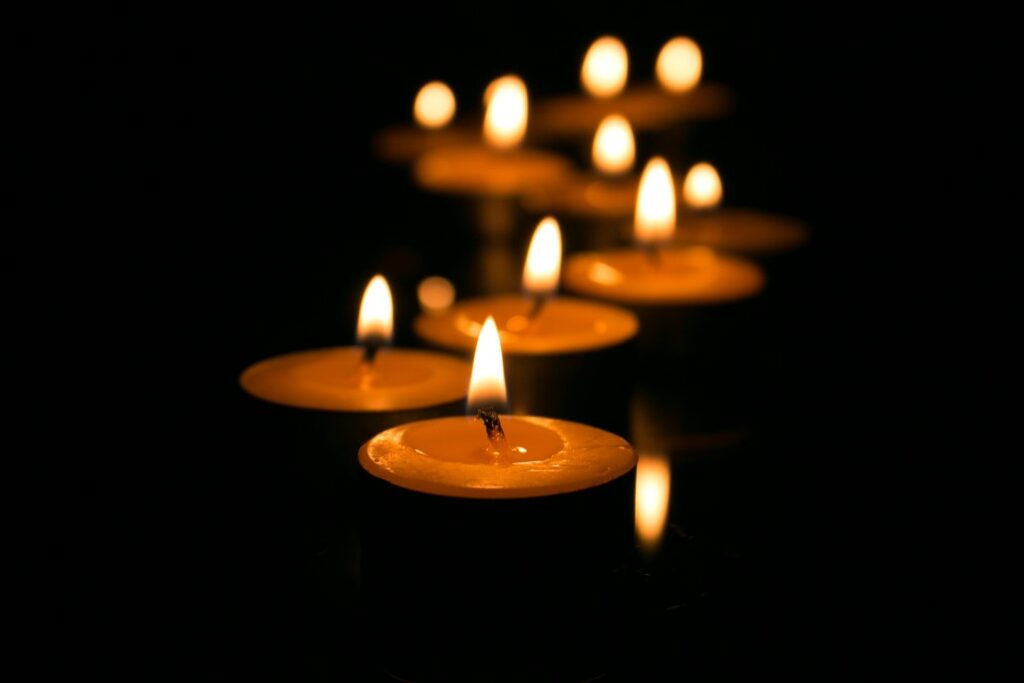
October is International Pregnancy and Infant Loss (IPIL) Awareness Month. This is a special time for bereaved parents and families to honour, celebrate and share precious memories of their babies. It is also an opportunity for families, friends and the broader community to come together to help raise awareness of miscarriage, stillbirth and newborn death – tragedies that affect thousands of families each year.
There are many ways you can become involved in IPIL month to show your support and help raise awareness of pregnancy and infant loss.
Each year, events and services are held around Australia that bring bereaved parents and families together in remembrance. As our world is looking very different this year due to COVID-19 and social distancing, some IPIL events and services are turning virtual. Click on each event below to find out more.
SANDS – Walk to Remember , Bears of Hope – Choosing Hope , Light Up the Night , Lullabies and Loss , Victorian Pregnancy and Infant Loss Remembrance Service
If you are unable to attend an in-person event or virtual service, you can simply take part in the global ‘Wave of Light’ by lighting a candle at 7pm local time to commemorate all the babies we have lost too soon.
We send a message of support to parents and families who have experienced pregnancy and infant loss, no matter how long ago. Your babies drive our work each day and support is always available through SANDS and Red Nose.

On Wednesday 4th November, The Stillbirth CRE will be launching the new IMPROVE eLearning module – an online training package designed to support healthcare professionals responding to women and families who have experienced stillbirth, conduct perinatal autopsy and mortality reviews, and communicate with bereaved parents.
We invite you to join the virtual event at 6pm Sydney time, which will include an overview of the training content by Professor Adrienne Gordon, presentation by bereaved parent and Stillbirth Foundation Ambassador Ann-Maree Imrie and formal launch by Nicole Flint MP on behalf of Minister for Health, Greg Hunt.
After postponing the Safer Baby Bundle launch events in Queensland and Western Australia earlier in the year due to COVID-19, we are pleased to announce new dates in October and November.
The Safer Baby Bundle will launch in Queensland on the 28th and 29th of October, and on the 3rd of November in Western Australia.
More information – Safer Baby Bundle

A Neglected Tragedy: The Global Burden of Stillbirths
Report Launch and Virtual Forum
A stillbirth occurs somewhere in the world every 16 seconds, according to the first ever joint estimates report released by UNICEF, WHO, the World Bank Group and the Population Division of the United Nations Department of Economic and Social Affairs.
The report, a critical milestone in improving the availability of global data, finds that despite progress being made since 2000, stillbirths have not declined as rapidly as maternal and newborn mortality. If current trends continue, an additional 19 million stillbirths will take place before 2030. Severe COVID-19 related disruptions in health care services could also result in an additional 200,000 stillbirths throughout 117 low-and middle-income countries over the next 12 months.
The overlooked tragedy of stillbirth demands urgent attention. To end preventable stillbirths, we must increase visibility, remove stigma, raise parent and caregiver voices, strengthen health systems to provide high-quality care and improve data quality.
The Stillbirth Centre of Research Excellence will be partnering with UNICEF and WHO for the virtual launch of the report on Wednesday 21st October at 10pm QLD time. Please join us as we raise awareness and help end preventable stillbirths.
To register, please click here.

Release of Every New Coverage Targets and Milestones to 2025
On 3rd September 2020, the Every Newborn collaboration, led by UNICEF and WHO, launched the new Every Newborn 2025 targets and milestones, marking the next step in the global effort to end preventable stillbirths and newborn deaths.
The event presented four new targets and nine corresponding milestones to 2025 and featured discussion on how to strengthen and improve access to high-quality maternal and newborn health services.
To read about the targets and milestones, as well as the full report, please click here.
While there is significant work to ensure pregnancy and childbirth is safer for mothers and their babies globally, progress has been made in reducing stillbirth rates in Australia since the initial Every Newborn Action Plan launch in 2014, and we are pleased to report the Safer Baby Bundle has contributed to this reduction.
Health services participating in the Safer Baby Collaborative across Victoria have reported an encouraging 27 percent decrease in stillbirth rates throughout the state.
We hope to see more signs of progress as the Safer Baby Bundle rolls out in Queensland and Western Australia over the next six weeks.
What is the Stillbirth CRE doing to reduce disparities in stillbirth?
Recognising the need for a focus on communities at risk, the Stillbirth CRE has established an Aboriginal and Torres Strait Islander (Indigenous) Advisory Group to support leadership and co-design of all research, education and policy initiatives. Current activities include the development of a series of short videos to start a public conversation about stillbirth prevention and bereavement care for Aboriginal and Torres Strait Islander women and communities. In addition, resources developed for the Safer Baby Bundle are being adapted into a series of webinar masterclasses specifically for Aboriginal Health Workers, to ensure the Aboriginal health workforce has a variety of means of accessing stillbirth prevention information. Consultations are also underway to support the first national stillbirth research priority setting exercise among Aboriginal and Torres Strait Islander communities.
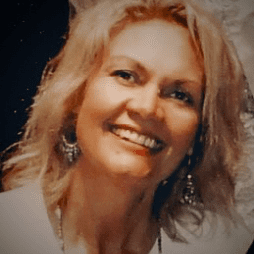
Deanna Stuart-Butler, Indigenous Advisory Group Chair
Deanna Stuart-Butler is an Arabana women whose country is the Lake Eyre Region of South Australia. She currently chairs the Stillbirth CRE Indigenous Advisory Group. She has more than 18 years’ experience in Aboriginal maternity health services. She is particularly interested in translating research into operational practices within mainstream maternity models and the clinical space. Her passion comes from seeing the injustice of pregnant Aboriginal women first hand, relentlessly pursuing equal and equitable access for Aboriginal women at a National, State and local level. With her drive and commitment, she always hopes to stimulate reflection on the approach used by clinicians in Aboriginal women’s health care, always ensuring that Cultural needs are respected.
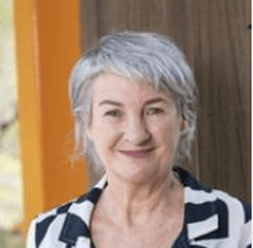
Associate Professor Fran Boyle, Co-lead Care After Stillbirth Program
Associate Professor Fran Boyle is a Health Services Researcher at The University of Queensland’s Institute for Social Science Research and a Principal Investigator with the Stillbirth CRE, where she co-leads the Care After Stillbirth Program. Fran has qualifications in psychology and public health, and is engaged in health services research and evaluation in a range of hospital and community settings. She is passionate about improving care for parents and families when a baby dies and, like many who are drawn to research and practice in this area, this passion began with her own lived experience of the loss of her first baby soon after birth. Fran is deeply committed to ensuring that policy and practice around perinatal bereavement care reflects both the latest evidence and the perspectives of parents.
One of the current Stillbirth CRE projects being conducted by Fran and her team involves the development of a resource to help bereaved parents navigate difficult discussions following the loss of a baby. Funded by Stillbirth Foundation Australia, this resource is being designed as a parent-facing version of the Clinical Practice Guideline for Respectful and Supportive Perinatal Bereavement Care, which was developed by the Stillbirth CRE and the Perinatal Society of Australia and New Zealand.
To learn more about the Stillbirth CRE’s commitment to improving care for bereaved parents and families, please clickhere.

Burnet Institute’s Knowledge Hub for COVID-19 (Know-C19 Hub)
Public health and policy responses to the unprecedented COVID-19 pandemic are based on a limited, yet rapidly evolving knowledge and evidence base, including research findings, analysis and early experience from other countries.
The Burnet Institute’s Knowledge Hub for COVID-19 (Know-C19 Hub) is the gateway to these research findings, as well as policy and technical reports. It also features the latest news about Burnet’s COVID-19 work. The Know C-19 Hub will actively seek to address gaps in knowledge and collate and provide novel strategic information on COVID-19 to inform the Australian and International response.
Support needed to help in mapping of COVID-19 Related Pregnancy and Perinatal Research in Australia
The COVID-19 pandemic has resulted in rapid changes to the delivery of routine maternity care and there is a considerable amount of research being undertaken across Australia. Many of these research projects were established in response to the changes and to the concern about pregnant women becoming infected. This mapping project, being led by the Burnet Institute in collaboration with the Stillbirth CRE, seeks to support all planned and ongoing COVID-19 related maternal and perinatal projects across Australia. A coordinated map of all projects will support researchers undertaking COVID-19 related maternal and perinatal projects, facilitate collaboration and harmonisation, and provide a central place for people to find others doing similar research, including a platform for dissemination through a national network.
If you are working on a project in this field, we ask you to share some details about your project in our brief online survey.
Opportunities for parents to participate in research
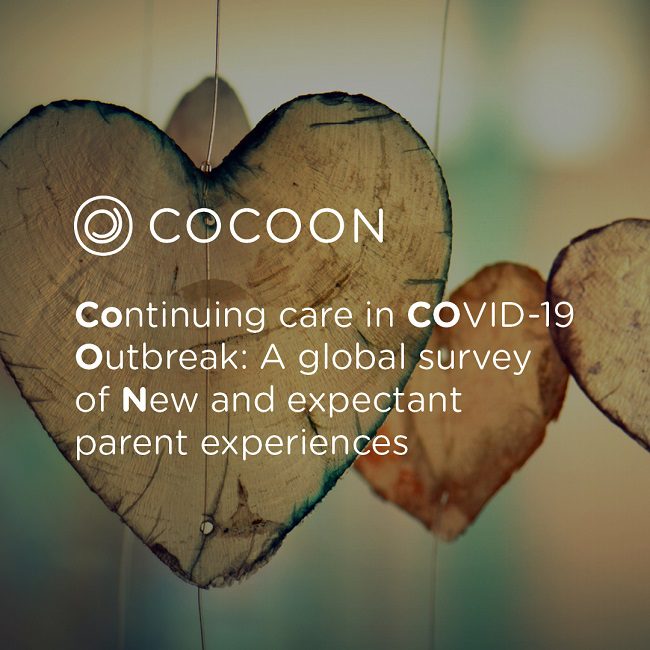
Inviting parents to participate in the COCOON Study
We are inviting all mothers and fathers who are pregnant or have given birth to their baby during the COVID-19 pandemic to participate in a global research study to understand the psychosocial impact and changes to care experienced by parents during this time.
We particularly want to understand the experiences and concerns of parents who have experienced stillbirth or newborn death during the pandemic.
COCOON aims to help improve future care, with an emphasis on bereavement care, for all families around the world during COVID-19 and other future health crises.
Please share this study widely with family, friends, colleagues and patients.
CLICK HERE TO GO TO THE COCOON STUDY

Help improve grief support options for Dads
The Stillbirth CRE are inviting fathers who have experienced a stillbirth or death of their newborn baby within the last 5 years to join our research study to help develop a new online grief support program. The new online program aims to provide an evidence-based support option to help parents navigate grief and build coping strategies and resilience for the longer-term.
Join the conversation and help inform the development of the program here.
Stillbirth Advocacy Working Group Stillbirth Spokesperson Survey
The Stillbirth Advocacy Working Group (SAWG) is a group of bereaved parents, clinicians, researchers, and others who are interested in raising awareness of stillbirth globally so that we can help end preventable stillbirths and ensure appropriate respectful care when these deaths do happen. SAWG is co-chaired by the International Stillbirth Alliance (ISA) and the London School of Hygiene & Tropical Medicine (LSHTM). The Stillbirth CRE acts as ISA’s Western Pacific Regional Office.
With the help of the Stillbirth CRE, SAWG is compiling a list of Stillbirth Spokespersons–individuals with personal experience of stillbirth willing to raise their voices to increase awareness. Stillbirth Spokespersons may be parents, other affected family members, midwives, other clinicians, counsellors, or others with personal experience of stillbirth. SAWG will maintain the Stillbirths Spokespersons list as a resource for the media and other public and private organizations such as United Nations agencies who wish to raise awareness of stillbirth through including the voices of those affected. If you wish to volunteer to be added to the list of Stillbirth Spokespersons, please click on the link below to fill in a brief survey.
Please contact SAWG co-chairs Susannah Leisher shleisher@aol.com or Hannah Blencowe hannah.blencowe@lshtm.ac.uk if you have questions about this survey or are interested in joining SAWG. Thank you!

Webinar Series Recap
Our 2020 National Stillbirth Webinar Series ‘Focus on Stillbirth Prevention and Care’ launched on 22nd July with an opening message from Federal Health Minister Greg Hunt, who reinforced the commitment of the Australian government to stillbirth reduction through the National Stillbirth Action and Implementation Plan.
The webinar series ran over four weeks and was extremely successful, drawing an audience of more than 600 parents, clinicians and researchers.
The webinar series allowed the Stillbirth CRE to continue to provide a platform for engagement for the sector, within the limitations of a COVID-19 environment. It provided a timely opportunity to discuss the latest research and the impact of COVID-19 on the provision of maternity care.
The series was recorded and is now available to an even wider audience through the Stillbirth Centre of Research Excellence website. We would like, once again, to thank all of the speakers for generously providing their time, and for everyone who participated and joined us for the series.
Safer Baby Bundle to Feature in PPESIG Webinar
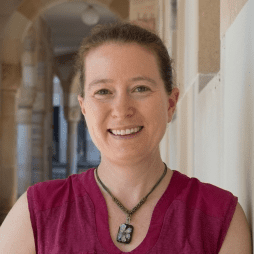
Dr Christine Andrews, Postdoctoral Research Officer with the Stillbirth CRE, will be presenting an overview of the Safer Baby Bundle: what the initiative aims to achieve and progress to date at the very first Perinatal and Paediatric Special Interest Group(PPESIG) webinar at 11am QLD time on Wednesday 21st October.
Stillbirth in Australia
We are excited to announce that a six-part series written by members of the Stillbirth CRE has been accepted for publication by Women and Birth: Journal of the Australian College of Midwives.
In the series, titled Stillbirth in Australia, we present an overview of the establishment of the Stillbirth CRE and highlight the key activities that led to the development of a National Stillbirth Action and Implementation Plan. We also discuss the Safer Baby Bundle initiative and inequities for families from Aboriginal and Torres Strait Islander and migrant and refugee backgrounds. Public awareness, respectful, parent-centred care and the future of stillbirth research and education are also highlighted throughout the series.
The series will be available to read via Women and Birth from Tuesday 20th October.
Level 3, Aubigny Place
Mater Research Institute
Raymond Terrace,
South Brisbane QLD 4101
The University of Queensland Faculty of Medicine